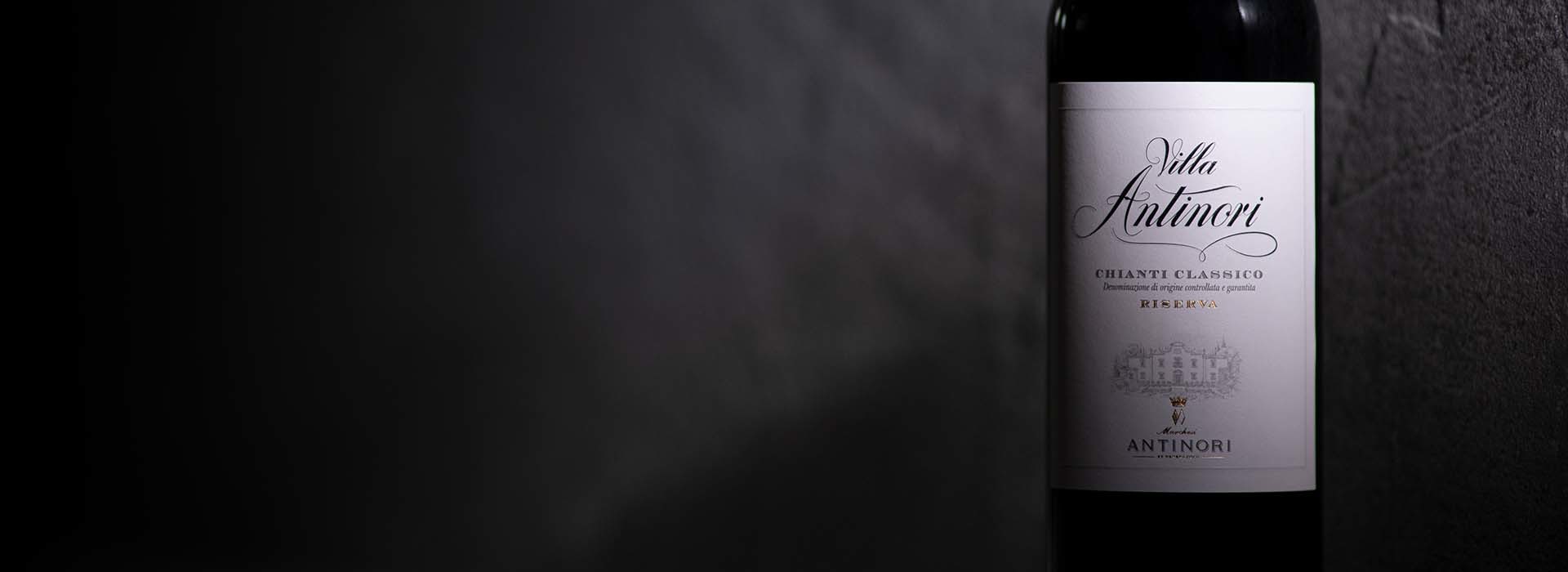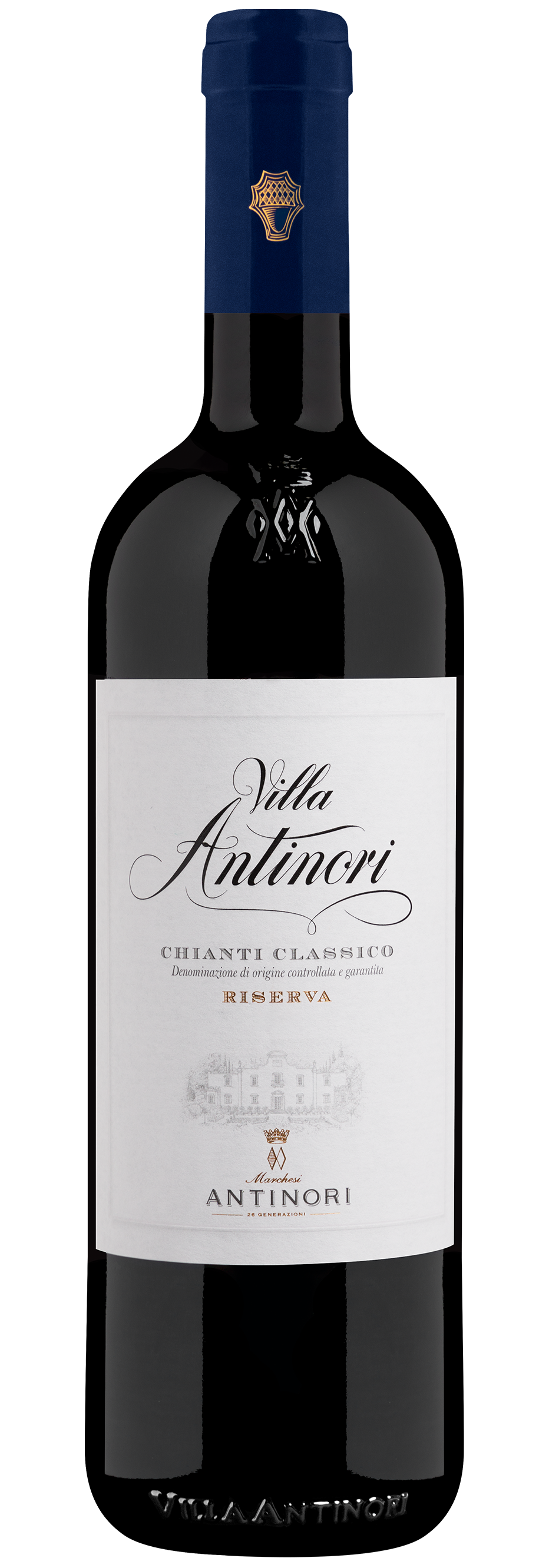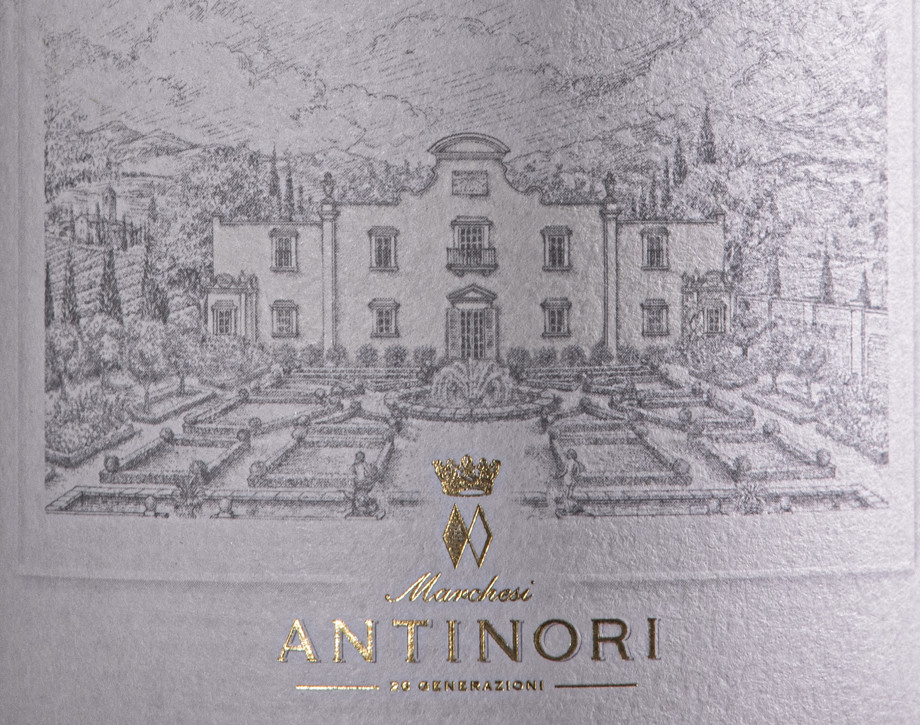Villa Antinori Chianti Classico Riserva

Climate
Overall, the 2019 growing season in Chianti Classico followed normal weather patterns. The winter months were relatively cold with limited precipitation while the beginning of spring brought cold temperatures and rain showers, especially during April and May. Summer was hot but was uninterrupted by intense heat events and saw slightly higher than average rainfall that allowed regular vine and cluster growth and development. Beautiful weather began at the end of August and lasted through the months of September and October giving all grape varieties plenty of time to progress to optimal maturity. The grapes were harvested under ideal climatic conditions starting mid-September with Sangiovese and was brought to a conclusion on October 11th.
Vinification
The grapes were destemmed and gently crushed then transferred into stainless steel vats where alcoholic fermentation took place at a controlled temperature that did not exceed 30 °C (86 °F). Maceration on the skins lasted for a period of approximately 12-15 days using controlled automated techniques to gently extract aromas, structure, and supple tannins. Sangiovese underwent malolactic fermentation in stainless steel vats while several lots of the other grape varieties went into second and third fill barriques. The various lots were blended and continued to age in oak, predominantly in larger format barrels and a smaller percentage in barriques, up until spring 2021. Bottling began in August 2021.
Historical Data
Villa Antinori is, first and foremost, an idea, a way of conceiving the production of wine: on the one hand, experimentation and evolution, on the other hand, continuity in tradition. Sangiovese and other complementary grape varieties render their homage to an historic label and a wine with a long tradition,: this name, in fact, is almost one hundred years old, as the wine was produced for the first time in the 1928 vintage. With the inauguration of the Antinori Chianti Classico cellars, the family wished to reinterpret a Tuscan classic with a Riserva offering which is both delicate and, at the same time, elegant and decisive in flavor.
Tasting Notes
Villa Antinori Chianti Classico Riserva 2019 is ruby red in color. On the nose aromas of small red fruit and floral hints of lavender lead over to spicy notes of cloves and sweet tobacco. The rich bouquet is completed by impressions of graphite, white chocolate, and mint. A mouth filling entry with supple tannins is sustained by excellent freshness. The finish echoes aromatic notes perceived on the nose.

The Wine
Villa Antinori Chianti Classico Riserva is a blend of Sangiovese together with other complementary varieties produced as a tribute to Antinori’s historic label that has accompanied the family’s winemaking traditions over the years. The inauguration of the new winery Antinori nel Chianti Classico inspired the family to reinterpret this Tuscan classic into a premium quality wine with unmistakable style, the resulting Riserva is delicate, decisive and elegant.

Climate
Overall, the 2019 growing season in Chianti Classico followed normal weather patterns. The winter months were relatively cold with limited precipitation while the beginning of spring brought cold temperatures and rain showers, especially during April and May. Summer was hot but was uninterrupted by intense heat events and saw slightly higher than average rainfall that allowed regular vine and cluster growth and development. Beautiful weather began at the end of August and lasted through the months of September and October giving all grape varieties plenty of time to progress to optimal maturity. The grapes were harvested under ideal climatic conditions starting mid-September with Sangiovese and was brought to a conclusion on October 11th.
Vinification
The grapes were destemmed and gently crushed then transferred into stainless steel vats where alcoholic fermentation took place at a controlled temperature that did not exceed 30 °C (86 °F). Maceration on the skins lasted for a period of approximately 12-15 days using controlled automated techniques to gently extract aromas, structure, and supple tannins. Sangiovese underwent malolactic fermentation in stainless steel vats while several lots of the other grape varieties went into second and third fill barriques. The various lots were blended and continued to age in oak, predominantly in larger format barrels and a smaller percentage in barriques, up until spring 2021. Bottling began in August 2021.
Historical Data
Villa Antinori is, first and foremost, an idea, a way of conceiving the production of wine: on the one hand, experimentation and evolution, on the other hand, continuity in tradition. Sangiovese and other complementary grape varieties render their homage to an historic label and a wine with a long tradition,: this name, in fact, is almost one hundred years old, as the wine was produced for the first time in the 1928 vintage. With the inauguration of the Antinori Chianti Classico cellars, the family wished to reinterpret a Tuscan classic with a Riserva offering which is both delicate and, at the same time, elegant and decisive in flavor.
Tasting Notes
Villa Antinori Chianti Classico Riserva 2019 is ruby red in color. On the nose aromas of small red fruit and floral hints of lavender lead over to spicy notes of cloves and sweet tobacco. The rich bouquet is completed by impressions of graphite, white chocolate, and mint. A mouth filling entry with supple tannins is sustained by excellent freshness. The finish echoes aromatic notes perceived on the nose.

Villa Antinori
Villa Antinori is an important corner stone as its name is associated with over 100 years of history. At the same time it represents ongoing progress. The one essential principle is continuous research for increasingly higher quality standards. This idea produced two different wines that share a common passion for quality: Villa Antinori Rosso and Villa Antinori Bianco. Villa Antinori was originally produced in 1928 by Marchese Niccolò Antinori as a Chianti Classico that could age and that would improve over time. Soon after, Villa Antinori was found in the most prestigious cellars in embassies, royal houses, important hotels and restaurants. In 1931, Villa Antinori Bianco was made from traditional Trebbiano grapes. In the 1980’s a small percentage of Chardonnay was added in order to give the wine better structure.


















